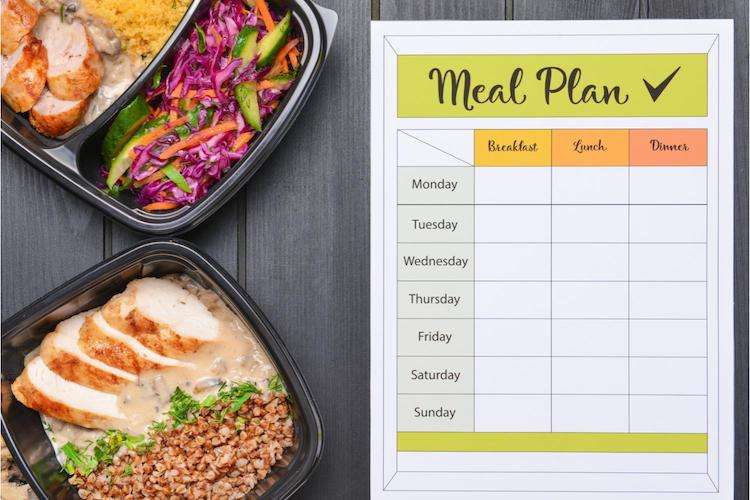Why is having a meal plan for Eating disorder recovery helpful?
We’ve all come across meal plans at some point. A meal plan outlines what and how much you’ll eat at each meal over a week. Often associated with fad diets and food restrictions, these plans are everywhere online, promising to help you achieve your goals. However, generic meal plans often fall short because everyone has unique needs based on their body and activity levels. On the other hand, meal plans for individuals dealing with disordered eating are essential for recovery. Let’s explore why.
First, meal plans for eating disorder recovery are created by Registered Dietitians who specialize in this area and are tailored to each patient’s specific needs. These plans aim to gradually introduce a variety of foods and challenge negative thoughts and beliefs about certain food groups. The level of structure varies for each person; some may require a detailed meal plan, while others may benefit from an intuitive eating approach. The ultimate goal is to encourage a balanced and consistent eating pattern, address nutritional deficiencies, and foster a healthy relationship with food.
The primary focus of a meal plan is to ensure the patient is eating enough and receiving a variety of nutrients. To achieve this, the dietitian considers the patient’s daily schedule to plan meals and snacks accordingly. As you reach certain milestones in your recovery, your dietitian will adjust the meal plan by increasing the variety and quantity of food. This process can be challenging, especially if you have food fears or rules, but the aim is to help you develop a healthy relationship with food. Constant communication with your dietitian is crucial, as they can provide the support and guidance needed to overcome these challenges.
Unlike the meal plans commonly found online, meal plans for eating disorder recovery are not designed for weight loss, food restriction, or promoting specific foods or nutrients over others. Instead, their purpose is to provide structure, support, and guidance in creating a healthy relationship with food.
Benefits of meal plans for eating disorder recovery
Provides Consistent Meals
Meal plans give you a helpful framework to follow, with specific meal times, portion sizes, and food choices. These guidelines can ease anxiety and uncertainty around meals, making things more predictable and stable. Plus, they help you maintain regular meal times, which keeps your energy levels steady, helps you stay focused, and supports your overall health.
Reduces Food Preoccupation
Knowing what and how much you’ll eat throughout the day can reduce your preoccupation and anxiety about food. This allows you to be more productive and focus on other matters, rather than spending most of your day thinking about meals.
Ensures Your Meals and Snacks are Nourishing
With a dietitian creating a personalized meal plan for you, they’ll ensure you have a variety of foods that provide the vitamins, minerals, and other nutrients you need to feel your best physically, mentally, and emotionally.
Provides Gradual Exposure to Different Foods
As you make progress with your dietitian, remember that your meal plan will adapt too. This process will introduce new foods and help you conquer fear foods, all aimed at boosting your confidence and easing any anxiety or stress around eating.
How we can help
At Nutrition Braved, we see meal plans as a powerful tool for your recovery journey. Our approach is tailored to each individual, as our dietitians work to challenge disordered eating behaviors and thoughts surrounding food, including any rules or judgments. We aim to break down barriers and guide you toward intuitive eating, fostering a more balanced relationship with food where all foods are welcomed. We’re here to offer support not only with food but also with the emotions that may arise during or after meals. Together, we’ll determine the level of structure that’s beneficial for you, helping you expand your food choices while easing anxiety and stress related to eating.
For more information about our approach and to schedule a consultation, contact us today.



